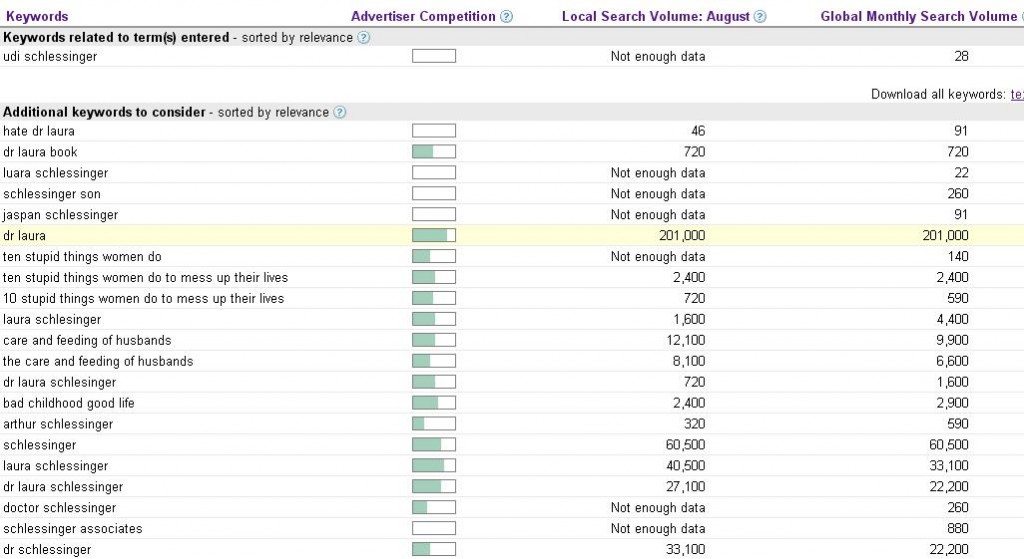I haven’t written about blogging for a while. Since I follow quite a few blogs every day, not to mention, monitor the activity of my own blogs, it’s interesting to see what works and what doesn’t work – sometimes it’s just plain obvious, other times I had to learn certain lessons the hard way. Here are six suggestions that may be useful to anyone who’s blogging.
- Avoid ads (at first, at least): when you just start a blog and even when it’s quite a bit more established, it’s best to avoid putting ads. First, you’re not going to make any serious amount of money: if you place AdSense code, you may get the occasional click which would probably amount to ~10 cents. However, you will cause – and this is particularly important at the beginning – your potential audience to reconsider visiting your blog.
Here is a personal example: I have a niche site which provies book and movie reviews. When it first launched I got quite a few people very involved because it’s dealing with a specific topic that apparently many people find interesting. About a month after I launched it I added ads: this drove my two most loyal readers away – they never came back! I even wrote one emails and she never responded. After two months during which I made a whopping $4 I took the ads off. I think these people’s response was extreme but some people are turned off by ads or anything that can be viewed as trying to make money (if you’ve been on Twitter for a while, you know that people on Twitter – tweeps – are very hostile to ads). Note that I don’t think there’s anything wrong with placing ads – you spend time and effort, get a domain, a hosting account – why not get compensated, at least a bit, for your efforts?
Another consideration is that a blog is a personal thing and ads take away from that intimacy. I think when you have an established audience, most (if not all) will understand it if you put ads, but at first it will turn people off.
If and when you do place ads, it’s a good idea to put them in a place that doesn’t ruin the “visitor experience”. Some blogs are so crammed with ads it’s just a turn off even for me.
- Give your posts proper titles – the search engine perspective: Try to incorporate phrases that people search for in your titles. It’s not really hard to do, a quick visit to the Google keyword tool will show that. For example: Six Blogging Tips and Tricks (the title of this post).
- Give your posts proper titles – aim to go viral. If you can come up with a good catchy title it will certainly draw attention. And if it’s a good post, people will want to share it, retweet it and send it to their friends. My recent blog post “Gaining A Million Followers In Less Than 30 Days” – got the fastest numbers of visitors from the moment I tweeted a link to it from all of my other blog posts.
- Use video properly: using video is a great idea which is highly recommended. Search engines love it and people respond better to videos than to text – after all, it’s easier to listen than to read. However, videos can’t replace your blog post completely.
There are blogs that only rely on a video to convey their message. No description of the content nor a meaningful title. Not only this is bad from an SEO perspective since there is no way for the search engines to figure what the post is all about, and so, index it properly, but this is also true for people too. Often I can’t turn on my speakers from various reasons and consequently, can’t listen to the video – so there are some blog posts I literally have no clue what they are about as much as I’d like to know.
- Use a correct permalink structure: meaning, the path to the post should not use WordPress’ default structure (which looks something like this: www.domain.com/?p=1234. Instead, use /%category%/%postname%. This is good for three reasons.
First, it helps with search engine optimization, as the path has a definite impact on SEO.
Second, it helps humans know what the post is about if they just see the link. For example, even without reading this blog post, by looking at the link (which is: http://www.industryreview.org/search-engines/six-blogging-tips-and-tricks), people can get a pretty good idea what the post is about.
Finally, it helps you when you check for rankings. One of my oldest sites – coincidentally, the one I mentioned in #1 – has multiple pages that rank well in Google (and Bing and Yahoo) for various phrases. However, I made the mistake of using the default permalink structure – so unless I manually check, I have no idea which pages rank! All I see is a www.domain.com/?p=1237.
- Beware of spammer comments: Although I’ve written a post about this before, some comments are really quite devious in the sense you may be tricked into approving them.
Not only they may have hidden links – and this has happened to me – a space between two words had a link to some nasty site, and I couldn’t see it until I actually viewed the code. But additionally, even if they are harmless, and you approve them, they make your site look amateurish to anyone who has seen these comments a million times before.
In other words: avoid any comment that sounds generic – like they could fit any post – particularly if they sound flattering, i.e. “Thank you for the great post”, “Can I use parts of your post in my own blog?”, “Darn, I left a comment but it didn’t work.. do you see it?”, “Your design is fantastic – can I ask where you got that theme from?” and that sort of thing. All these are similar to comments I get every single day.
That’s it for now. I hope this has been useful.






